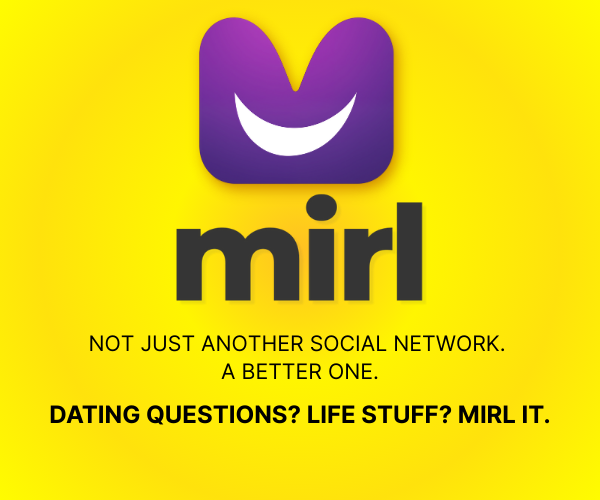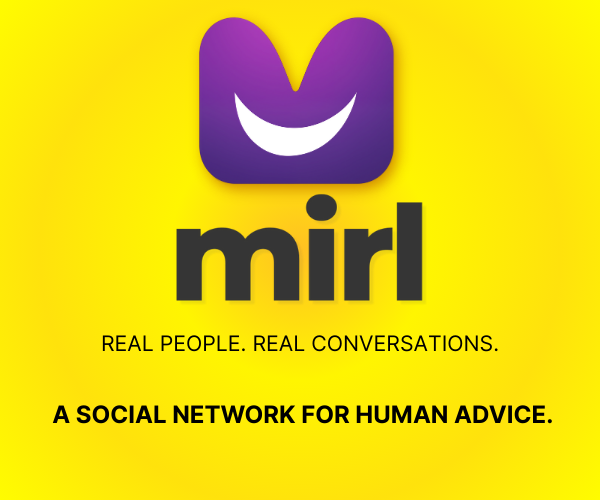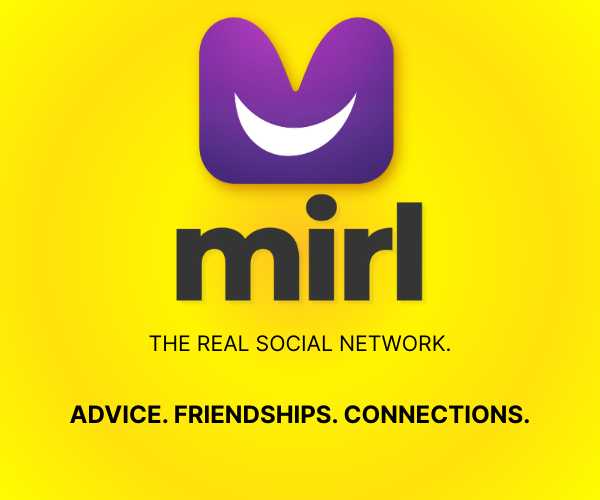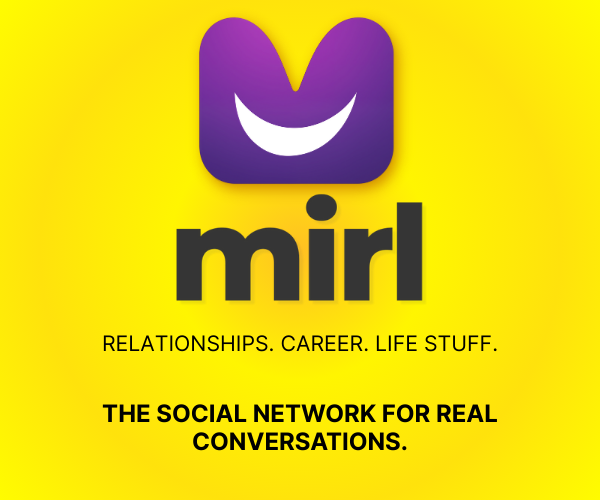How to Be Vulnerable in a Relationship, Open Up & 28 Secrets to Grow Closer

Learning how to be vulnerable in a relationship means opening up and showing your heart. But, for all the risk, it’s more than worth it in the end.
For those of you that suffer from trust issues, this one is for you. So many people have such an incredibly difficult time opening up to people, not just their partners either. But learning how to be vulnerable in a relationship is the key to maintaining a long and healthy relationship.
It can be hard to know how to be vulnerable in a relationship, especially if you’ve been burned in the past.
But it’s super important to get past all of it. You won’t be happy in a relationship unless you’re brave enough to open up. And your relationship won’t be as successful as it could be. [Read: Healthy relationship: 27 signs, qualities & what it looks like in real life]
What is vulnerability?
Many people know what being vulnerable feels like, but what is the actual definition?
Being vulnerable is a state of being when you are exposed to the possibility of being physically or emotionally harmed. Although in this context, we usually focus on the potential for emotional harm.
Being vulnerable requires emotional risk. When you’re vulnerable, you share who you are at the deep core of your being. You allow your partner to know exactly who your true inner self is without any filters.
When you do this, you open yourself up to the possibility of being rejected or judged. It requires you to share what you think, feel, and need. This requires complete authenticity.
When you are truly vulnerable, your whole true self is visible to your partner, and that can be scary. [Read: What does it mean to be vulnerable? 15 ways you can open up more]
Vulnerability – Why it doesn’t make you weak
The assumption is that when you’re vulnerable, you seem weak, but that isn’t the case at all. If anything, vulnerability makes you strong and resilient. It’s perfectly normal to want to shut off your emotions and stop feeling everything, especially your difficult emotions.
But to overcome those feelings and wear your heart openly on your sleeve despite your fear takes some serious strength. Vulnerability is not and never will be a weakness; it’s part of being human.
For instance, when you’re going through a breakup, the thing that makes you strong isn’t shutting off what you feel and pretending you don’t have a heart. Rather, it’s the ability to sit with your emotions and process every one of them.
Is being vulnerable uncomfortable? Yes, without a doubt—but it’s also necessary. Otherwise, you’ll sacrifice a lot of great relationships and friendships along the way.
How to be vulnerable in a relationship—Ways to feel closer and trust your partner
Now that you know how much of a strength it is to be vulnerable, it’s time to learn how to be vulnerable in a relationship.
You’ll be surprised to find out that it actually isn’t very hard at all. It’s a big hurdle to get over at first, but once you get started it’ll just get easier with time.
Here’s how to be vulnerable in a relationship and start enriching the relationships in your life.
1. It all begins with you
Before you can begin to be vulnerable in a relationship, you first must be open and honest with yourself. That means learning and coming to terms with your own feelings for yourself so that you can easily relay them to your significant other.
Everybody has a different way of understanding their emotions. You can write them out, or just sit alone with your thoughts and process them in silence. Many people prefer to talk about them with a friend.
Whatever your method, you should understand how to be vulnerable with yourself before you can be vulnerable with your partner. [Read: 25 self-discovery questions to bring you closer to learning who you are]
2. They deserve it
You are in a relationship with them, so we assume you care about them and know that they deserve 100% of you, not just 60%. You should be vulnerable with them and give it your all. It is tremendously easier to be vulnerable when you know that they deserve your vulnerability.
It can be difficult to open up to someone who has wronged you and maybe doesn’t deserve your honesty and transparency. But this person is there for you, so let them see who you are. [Read: 29 signs someone doesn’t care about you or your feelings]
3. Have a discussion with them
Being vulnerable means that you are opening up to them, every part of you. This means the good and bad parts come to the surface. Make sure they are prepared for that.
Ask for their support through this, and make sure they understand how difficult this is for you. It’ll make the process easier for you both.
4. Be patient with yourself and your partner
Listen, this isn’t going to be a walk in the park for either of you. It is going to take some time. It’s okay if you fall back a few steps and feel like you can no longer be vulnerable.
That’s okay. Take a deep breath, and start again, because you CAN do this. [Read: Love is patient love is kind: 14 rules to experience true love]
5. Encourage your partner to do the same
So, you are opening up and being honest with your partner, right? Well, it’s time they do the same with you. It’s only fair!
If you are choosing to be vulnerable with them, and share every part of you with your partner, it is only fair they attempt to do the same. This is a journey you should share together. [Read: Healthy relationship: 27 signs & what it looks like in real life]
6. Have a conversation with yourself
Dig a little deeper into your personal thought bubble and try to learn why you haven’t been vulnerable in the past. What is stopping you?
Understanding why it took you so long to get to this point will make it easier for you to get back on track if you ever feel like giving in and building all of your walls back up.
7. Practice with a friend or family member first
Yes, it is hard to be vulnerable with your partner, because we put a lot of pressure on our romantic relationships to succeed. We fear that if we are vulnerable and open up to them, they may find something that they don’t like. And they will leave us.
First of all, if they do that, they aren’t someone who deserves your vulnerability anyway. But to rid yourself of that anxiety and doubt, be vulnerable with a friend or family member first. Practice makes perfect. [Read: 10 communication techniques to finally get them to open up to you]
8. Don’t be vague about your needs
If you want them to just listen to you, tell them that exactly. If you want input and advice, tell them that as well. Don’t just start opening up to them without telling them what you need in return.
It is unfair to them that you have expectations of this interaction that they have no knowledge of. They are doing their best to give you what you need, but can’t possibly give you what you need if you don’t tell them. [Read: How to express your feelings: 16 must-know ideas to speak your mind]
9. There’s a time and a place
Please don’t decide to be vulnerable at a family dinner or in the middle of a movie theatre. Make sure the timing and the location are appropriate.
Once again, you can’t expect your partner to react in a great way when the conversation completely takes them by surprise. Try to do it when you have some alone time and the environment and atmosphere are intimate.
10. Own your mistakes
When telling your story, it can be tempting to open up about all of the terrible things that have happened to you, and not the things that happened because of you. But make sure you tell both sides of the story, not just the side that makes you look good.
If we are going to be vulnerable with our partners, we need to tell the whole truth *especially the other side, which shows you in bad light*, because none of us are perfect. [Read: Long-term relationship advice: 14 tips to transform your love life]
While you will want to discuss your past, it is also important to discuss what you want for your future. Learning how to be vulnerable in a relationship also includes talking about your goals and aspirations. This shows true vulnerability.
Dreams are fragile things easily crushed if shared with the wrong person. Take a deep breath, and tell your partner about your hopes and dreams.
12. Be in the moment
If you want to learn how to be more vulnerable in your relationship, you have to be willing to be in the moment. When we spend a lot of time in our heads with our own thoughts, we can miss out on emotional intimacy.
Look your partner in the eye, listen to what they are saying, and be willing to give time and attention to them in every moment when you talk. [Read: Free-spirited ways to live in the moment and stop worrying]
13. Say what you really think
It’s important to express your needs and wants and be your true self. Try not to be afraid to say what you really think. You shouldn’t be insensitive or hurtful to your partner, of course, but you should still say it.
It’s all about being honest and authentic. You should be open to giving and receiving feedback without getting defensive. No one is perfect, so you should have some self-compassion for your flaws.
This will help you have honest conversations with your partner.
14. Ask for what you need from your partner
If we have emotional pain, it’s easy to dismiss it or try to protect ourselves from others by closing off from them. But when you are vulnerable, you have a close connection with your partner.
When you have this close bond, you feel safe and willing to speak up and tell them what you need. When you admit what your needs are, that you’re struggling with something, or that you want to lean on your partner, that allows them to feel for you and respond in ways that will build emotional intimacy.
15. Be brave and expose your feelings
Many people are scared to express their feelings—even to themselves. They are pretty good at lying and denying these emotions. But you need to acknowledge and accept all of your feelings, good and bad.
When you do this, you are getting in touch with yourself and sharing that sense of self with your partner. This is a huge part of getting comfortable with being vulnerable and strengthening your connection with your partner. [Read: How to be yourself: 26 steps to un-fake your life & love being you]
16. What are you feeling?
This might be the most important part of learning how to be vulnerable in a relationship. You can’t really share yourself with your partner if you are unaware of who you are and what you are feeling.
Your past experiences have shaped who you are. When you share these with your partner, it can impact your relationship in a positive way.
Be aware of your thoughts, feelings, and behaviors. Remind yourself that your feelings are valid. Don’t judge them.
Also, try to become more aware of what triggers your emotional responses or causes you to shut down or explode. Once you are aware of your deepest fears and needs, you can be vulnerable with your partner by sharing them. [Read: 45 truths & real questions to get to know yourself on a much deeper level]
17. Start slowly
When you deeply share yourself, it requires trust. And in order to trust someone, you need time.
You shouldn’t share all of your personal feelings all at once at the beginning of a relationship. So, just start slowly and go at your own pace.
Ask your partner questions too, so you can understand them better. Encourage them to be vulnerable with you. This can help you feel safer when you share your feelings. You can start with something less personal, such as how you’re feeling about a problem at work.
Once you build trust over time, you can start feeling more comfortable opening up about more personal topics. [Read: 20 best questions to ask in a relationship to understand each other]
When you share your fears with your partner, you will create a much deeper level of intimacy. This can include telling them that it’s scary for you to be vulnerable, too. So, try to open up about your fears instead of shutting down when you feel insecure.
We all have insecurities and fears. Even if you think they are irrational, they can still have an impact on how you behave.
Sharing these fears might seem difficult, but it will bring you closer. When you share these concerns, you give your partner more opportunities to love you. They will probably respond to your sharing with empathy and compassion. And then you will feel more understood.
[Read: 42 secrets to communicate better in a relationship & ways to fix a lack of it]
19. Remember that it’s not about weakness
Being vulnerable isn’t about being weak. Vulnerability is about opening yourself up to someone and letting that person into your world. It’s okay to protect yourself, but there are some people you should connect with on a deeper level. You’re not weak by opening up—you’re strong.
You need to keep this in mind the next time you’re being vulnerable. If anyone ever convinces you that you’re weak just because you show emotions, they don’t deserve to be in your life. [Read: These unique traits show you if someone is trustworthy]
20. Know why you flee
Usually, right when we’re at the moment of being vulnerable, we bail. This is because when we sense danger, we move away from it.
Also known as the fight-or-flight response, this is why we either shut our emotions off or run away from them when our feelings get too overwhelming to handle.
If you want to learn how to be vulnerable in a relationship and overcome your fears of vulnerability, understand the emotions connected to fleeing and learn what triggers you. [Read: How to be emotionally available: 17 ways to open up to love & life]
21. You can handle whatever happens
You need to remember that whether or not the outcome is positive, you’ll be able to handle it. If you think that running away from vulnerability prevents you from getting hurt, think again.
You can’t keep shutting your emotions off because then you won’t be resilient or strong enough to handle difficult situations. If there’s anything vulnerability can teach you, it’s your ability to withstand anything that life throws your way. [Read: Feeling hopeless: How to stop feeling overwhelmed & see hope again]
22. Don’t stop yourself
Instead of putting up your walls, give yourself the okay to experience openness. If you’re feeling pain, instead of running away, ask yourself why you’re feeling it. Your emotions are always teaching you a thing or two about yourself, so how else are you supposed to grow if you don’t sit with your feelings?
No matter how easy it is to put up your walls, refrain from doing it. In learning how to be vulnerable in a relationship, don’t stop yourself from feeling your emotions. When your fight or flight response is triggered, don’t run away or prevent it. [Read: 25 ways to emotionally connect with someone & instantly feel closer]
23. Accept yourself
At the end of the day, before you ever practice vulnerability, accept the fact that you are worthy. You’re worthy of your dreams and goals, and you’re worthy of human connection. By accepting yourself as who you are, you allow yourself to open up to everything around you.
When you haven’t accepted yourself as a whole, it’s a tendency to run away from yourself, including your emotions. So accept yourself and be kind to yourself! [Read: 34 life-changing steps to fall in love with yourself all over again]
24. Understand you’re already hurting yourself
Here’s the thing about vulnerability—by closing up, you already hurt yourself. Your emotions are pent up inside your body and mind, and this idea of protecting yourself actually creates more pain. By being vulnerable, you increase your chances of being happy.
Keep in mind that you can’t be truly happy when you keep closing yourself off from emotions. Repressed emotions will break you more than accepting your emotions ever will. [Read: Insecurity in a relationship: 34 signs & secrets to feel secure and love better]
25. Get yourself a reality check
Every now and then, we need a slight reality check to put us back in our place. When we put up walls, we’re not expressing our feelings and needs. Thus, it only continues to build up inside of us. What happens? We eventually burst like a bubble.
Getting a reality check from your partner, family, or friends can help bring you a new perspective on your behavior and what you need to change. [Read: Calm your mind: How to get the inside voices out of your head]
26. Track your feelings
Still confused about how to be vulnerable in a relationship? If you can, start by writing down your emotions throughout the day. Note down why you’re feeling this way, and how you acted on the emotions.
This will help you become more aware of your feelings and triggers.
Whether it’s journaling or just writing them down, this can help you become more self-aware of your emotions and track them better. Perhaps you’ll find you’re an emotional eater or uncommunicative when upset. [Read: How to control your emotions and become the pinnacle of restraint]
27. Don’t expect positive outcomes all the time
You’ll have positive outcomes, but remember, this is life. Do expect that some outcomes won’t be positive. There will be a lot of days when you won’t feel good after being vulnerable. You might feel out of control some days, but that doesn’t make you weak.
When learning how to be vulnerable in a relationship, know you’re not on a constant high all the time. [Read: How to be vulnerable in a relationship and feel closer]
28. It takes a lot of trial and error
You won’t be perfect at vulnerability overnight. It involves a lot of trial and error. As we mentioned earlier, there will be days when you feel like doing the opposite of opening up.
You’ll want to hide behind your walls and never open up, ever again. However, you also need to remember that if you’re going to be happy, you need to be willing to wear your heart on your sleeve. [Read: How to be fearless: 18 ways to set aside fear & live like a champion]
Vulnerability is strength—are you brave enough?
Being vulnerable means expressing your emotions and opening up to someone. Compared to the opposite, which is hardening your heart, vulnerability is an act of bravery and courage. It takes every ounce of strength to be vulnerable with the people around you.
[Read: 20 signs of emotional maturity & traits that reveal a mature mind]
Once you learn how to be vulnerable in a relationship, you can do anything. It is intimidating for most, but not for you—because you are secure, powerful, and strong. You’ve got this!



















